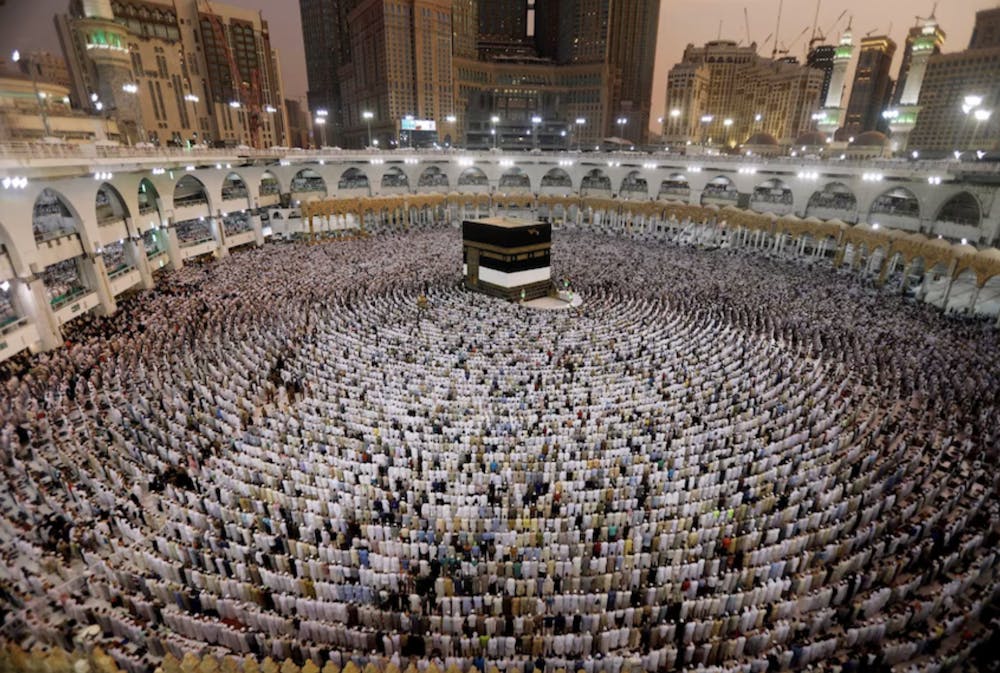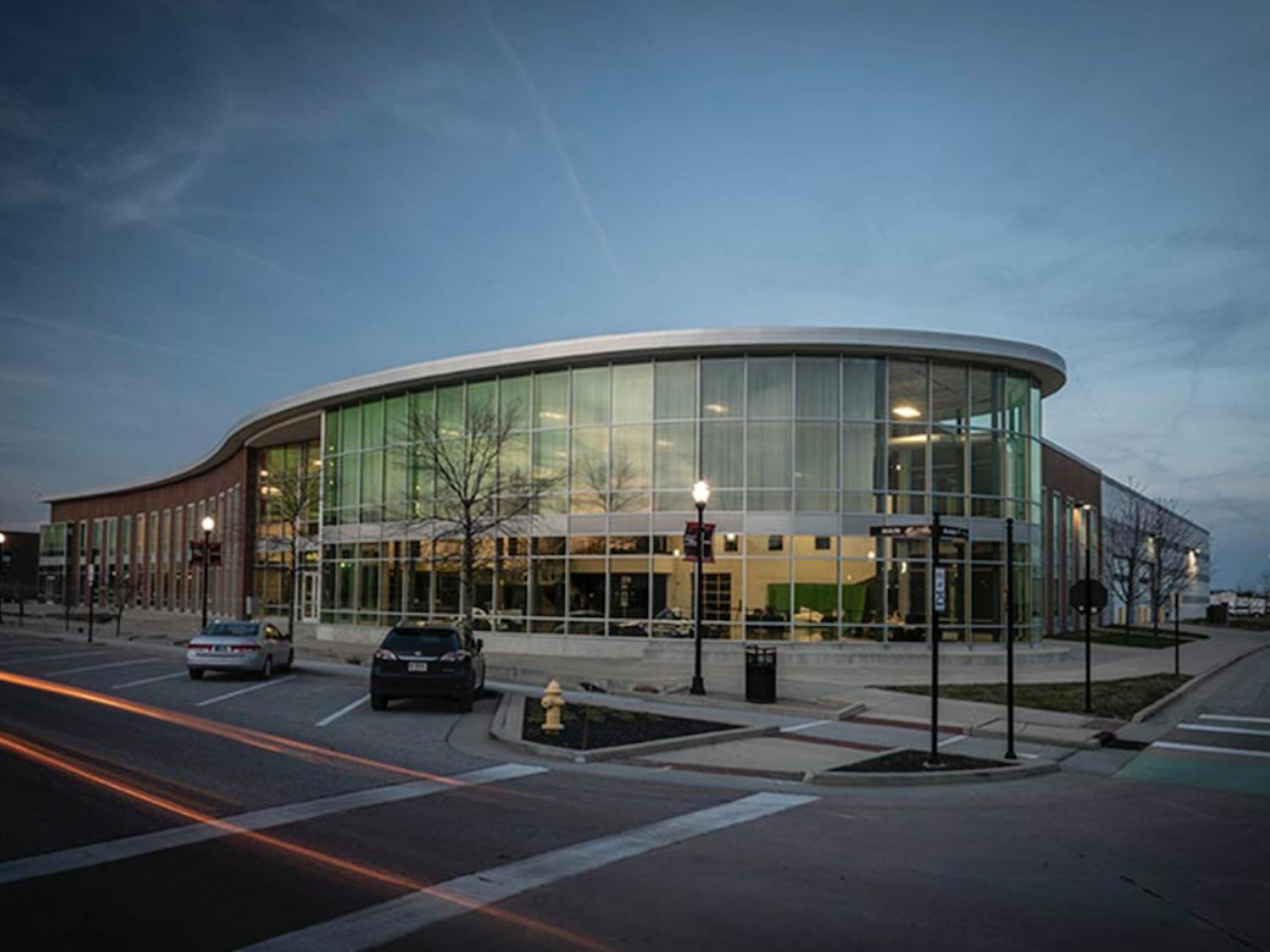There are roughly two billion Muslims on the entire planet, with nearly 50,000 Muslims living in Indiana. Muslims across the world, in Indiana and at IU Indianapolis, recently observed the holy month of Ramadan.
Islam is one of the three Abrahamic religions, with the literal definition of the word “Islam” being “submission to the will of God.” Muslims believe in one God, and that his final Prophet was Muhammad Peace Be Upon Him (also written as PBUH, a phrase stated after mentioning the Prophet’s name to signify respect and to wish blessings upon him). Muslims believe that their purpose on this Earth is to be kind, respectful, generous, peaceful and couriers of justice. They do this through following the Quran, the holy book for Muslims believed to be the true and exact word of God, and the teachings of the Prophet Muhammad (PBUH), also called the “Sunnah”.
In following such teachings, Muslims adhere to the Five Pillars of Islam: the declaration of faith (Shahada), praying five times a day to constantly be reminded of God (Salah), almsgiving to the poor and less fortunate (Zakat), fasting within the holy month of Ramadan (Sawm) and performing a pilgrimage to Mecca (Hajj) at least once in a lifetime if it is within one’s means.
Ramadan is the ninth month in the Islamic calendar, which, unlike the Gregorian calendar, follows the lunar cycles. The month of Ramadan begins and ends with the appearance of the crescent moon, thus, the beginning of the month goes back eleven days each year.
In 2025, the holy month of Ramadan began on the night of Feb. 28 and ended on March 29. During this month-long period, Muslims fast from sunrise to sunset, refraining from eating and drinking anything during this time frame, while also refraining from gossiping, backbiting, cursing or engaging in otherwise harmful activities. Instead, they increase their prayers and charity.
The purpose of this month is for Muslims to improve themselves spiritually through discipline, further intensifying their connection to their faith and empathizing with the less fortunate and hungry by experiencing their pain.

Sarah Raaes, founder and president of the Ethnic’s Mental Wellness Association (EMWA) at IUI and co-founder and vice president of Women Empowerment & Leadership Development (WELD) at IUI, is a proud Muslim who recognizes her faith as a key part of her identity. Especially as a hijabi woman who wears a religious headscarf for modesty, Raaes takes pride in her faith. She carries this significance with her in her leadership of student organizations and participation in on-campus events.
“The value of Ramadan to me is – like I said, being a Muslim is my core value – so I feel like Ramadan is that time that I should be putting everything else aside, and it’s kind of the opportunity to connect with what my values are,” Raaes said.
During the month of Ramadan, multiple events have been hosted by student organizations on campus, including the Muslim Student Association (MSA), the Pakistani Student Association (PSA), the Middle Eastern Student Association (MESA) and the Black Muslim Initiative (BMI).
At the beginning of the month, the Norman Brown Scholarship Program hosted their “Let’s Chai and Chat About Ramadan” event on Feb. 25 in collaboration with MSA, PSA, MESA and the Indiana Muslim Advocacy Network (IMAN).
The event educated attendees on what Ramadan is and why Muslims fast during this time. Chai and pastries were catered by YAFA Golden Coffee and Pita Land, two local establishments that serve authentic Middle Eastern staples. There was also a station for attendees to get their henna done.

The director of Norman Brown, a graduate assistant and peer leaders pose at the Chai and Chat event. Photo courtesy of @nbsp_iui.
For Raaes, the importance of on-campus events related to Ramadan, like the Chai and Chat event, goes beyond bringing the Muslim student population together.
“A lot of people have different perceptions of Ramadan and Islam in general. I think having events like these and having them open to different communities, not just Muslims, is super important. For example, the MSA did a Fast-A-Thon, so that was kind of a space where non-Muslims could come and experience what Ramadan is… It’s important that we really portray what Ramadan is about,” Raaes said.
In addition to the Fast-A-Thon, the MSA has hosted weekly events throughout the month of Ramadan for Muslim students including a Quran recitation and connection class, revert classes, intellectual faith discussions and tabling to teach students about Islam. In addition, they’ve hosted iftar (meal eaten at sunset in Ramadan) events to break their fasts with other Muslims in the community, including a collaboration iftar with the PSA and MESA student organizations.
In addition to developing a sense of community, the MSA sisters’ iftar also hosted a study circle where individuals had the opportunity to discuss and learn about Islam and the Quran. Salma Moussaif, an IUI student, described this as a very successful and engaging event that brought her closer to her peers.
“It was beautiful seeing all the sisters come together in the spirit of Ramadan,” Moussaif said. “The event fostered a strong sense of unity and sisterhood, bringing together a community focused on faith, reflection, and spiritual growth. I’d recommend attending next year to experience the meaningful discussions and the uplifting atmosphere.”
These iftar events have brought Muslim and non-Muslim students together to celebrate and enjoy the community feelings of Ramadan.
Additionally, on March 10, the Pakistani Student Association hosted a Ramadan Reflections event, where there was postcard making, calligraphy, trivia and giveaways.

Tasbih beads were made by students at a BMI event. Photo courtesy of @bmi.iui.
The Black Muslim Initiative, a new Muslim-centered organization at IU, hosted a Tasbih Bead-making event on March 12 to build community through crafts.
Tasbih beads are used by Muslims globally to count the recitations of certain prayers and phrases which serve as a remembrance of God and reflect on His glory and mercy. These beads are comparable to the Rosary used in Roman Catholicism and other denominations of Christianity.
In Islamic history, the Prophet Muhammad (PBUH) would break his fast with dates. As a result, Muslims to this day follow his teachings and break their fast with dates and water. Dates have been known to be nutritious, which is important in the month of Ramadan.
Graduate school programs have also been celebrating this month together and building community. The Asian Law Student Association at the IU McKinney School of Law held an iftar celebration on March 3.
This well-attended event by Muslims and non-Muslim students alike included a presentation that explained what Ramadan is, and it even detailed the spiritual and scientific health benefits of fasting during the month of Ramadan, such as lower blood sugar, reduced stress, improved heart health and digestion and lower blood pressure and cholesterol.
“A lot of times, people think Ramadan is just about fasting from food, but it’s more than just fasting from food,” Raaes said. It’s also fasting from bad habits and, you know, letting go of those habits.”

The Asian Law Students Association gathered at their Iftar Celebration event on March 3rd for food and a presentation. Photo courtesy of @alsa_iumckinney.
Additionally, the IUI Arabic and Islamic Studies department and the Arabic Studies Program Director, Dr. Edward Curtis, hosted an event on March 10 in the Campus Center 305 to teach attendees about Ramadan, Nowruz and Lent in the Middle East. This informative presentation highlighted the religious diversity in the Middle East and the unities between different faiths: Muslims observing Ramadan and certain Christian denominations observing Lent, as well as the unique cultural celebrations during this time such as Nowruz, the Persian New Year.
For those interested in learning more about the month of Ramadan or about Islam in general, they can enroll in courses offered at IUI or minor in Arabic and Islamic Studies with the School of Liberal Arts. To learn more about Islam or interact with Muslims on campus, it is also suggested to follow the Muslim Student Association (@iui_msa) and the Black Muslim Initiative (@bmi.iui) on Instagram.
Additionally, local mosques hold community events and volunteer services such as food pantries year round such as Masjid Al-Mumineen, Masjid Al-Huda and Masjid Al-Fajr and are great resources for those interested.
Ramadan is a month of building faith and community and taking care of everyone, whether locally or globally. These student organizations on the IUI campus have worked to achieve these goals through the Indianapolis community this past month.
“I really want people to understand that a lot of the negative things or impressions they have on Islam are not true and people should take time to educate themselves on what Islam truly is…because our society has portrayed Islam to be this really bad thing and it’s not, and, once people look into it, they might be surprised,” Raaes said.
Whether it is the community iftars, teaching students about Ramadan or raising funds for communities in need, Muslim students at IU Indianapolis have all brought central values of kindness, togetherness, self-improvement and generosity to the greater Indianapolis community.





